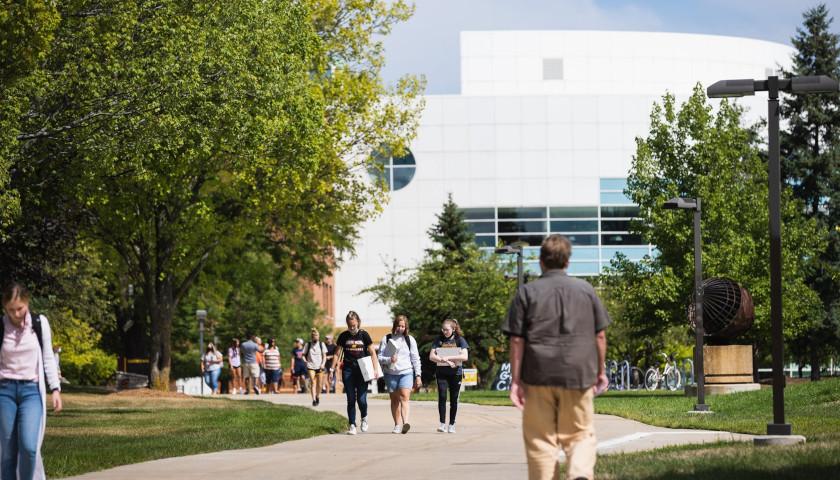by J.P. Isbell
The Michigan Supreme Court has announced the cases they will hear in their new session beginning in October. One of those cases is a lawsuit that was filed by students against Lake Superior State University, Central Michigan University and Eastern Michigan. In their lawsuit, they seek reimbursement for tuition, room and board and fees paid for classes during the beginning of the COVID-19 pandemic. The students feel the colleges breached their agreements by failing to provide live and in-person instruction.
However, the Michigan Court of Appeals upheld a Michigan Court of Claims ruling, saying, “The tuition contracts assessed fees as the result of registration, not as the result of receiving services.” The case is now in the hands of the MI Supreme Court.
In the summary of the case it says, “The plaintiffs were students at the defendant universities when the COVID-19 pandemic began. They seek reimbursement for tuition, room and board, and fees. They argue that they did not receive the full benefit of the tuition they paid before the pandemic began as a result of the transition to an online learning environment, which they claim is of lesser value than in-person instruction.”
The filing goes on to say, “They also argue that they did not receive reimbursement for their unused portions of room and board during the time they were in off-campus housing and also did not receive reimbursement for unused portions of fees paid for services that were not provided. They asserted causes of action based on breach of contract and unjust enrichment.”
The Court of Claims granted the defendants’ motions for summary disposition and the Court of Appeals consolidated the cases and affirmed the Court of Claims in a 2-1 published opinion.
The end of the summary says, “The Supreme Court has ordered oral argument on the application to address whether the plaintiffs are entitled to any reimbursement for payments made to the defendants for tuition, room and board, or any associated fees or costs for the winter/spring 2020 semester.”
In a legal brief from the students’ attorneys, it says, “What are a student’s contractual rights when her university fails to provide instruction for which she paid tuition, fails to provide services for which she paid fees, or failure to provide housing for which she paid rent?”
On the other side of the argument, multiple media outlets report that the universities say that they did the best they could under the circumstances and that the schools’ agreements with the students cover “unforeseen events.” They also argue that the students had access to faculty and classes and were awarded credits so they could graduate even during the pandemic.
In the Court of Appeals’ majority opinion, Judge Kirsten Frank Kelly writes, “These consolidated cases present the question whether Michigan’s constitutionally-created institutions of higher education are liable to their students for reimbursements for tuition and room and board as a result of the COVID-19 pandemic. In each case, the plaintiffs contend the defendant universities breached their agreements with their students by imposing upon them remote learning environments – termed ‘emergency remote teaching’ (“ERT”) by plaintiffs – as opposed to traditional in-person classroom instruction, which plaintiffs contend was inferior. The plaintiffs also seek reimbursements from the defendant universities for the period of time in which they did not remain on campus during the COVID-19 pandemic. In each case, we conclude the trial court did not err in granting summary disposition in favor of the defendant universities because the plaintiffs failed to demonstrate that the defendant universities breached any contractual agreement with them.”
In an opinion by Judge Swartzle, concurring in part and dissenting in part, he says, “In these three consolidated appeals, the student plaintiffs allege that they bargained for in- person instruction when they registered for courses and paid tuition for the winter/spring 2020 semester. The university defendants counter that they promised nothing of the kind. This is not a dispute about good intentions; rather, this is a dispute about what was promised and what was received. And what was received lacked much, if any, pedagogical value, according to the student plaintiffs.”
He went on to say, “Although my colleagues have provided a well-reasoned, thoughtful opinion affirming summary disposition on all of the student plaintiffs’ claims, I cannot join the opinion in full. With respect to the student plaintiffs’ claims apart from those for breach of contract involving tuition, I join my colleagues in affirming summary disposition.” However, the judge parts company with the other judges concerning the remaining tuition-based claims, questioning what constitutes “educational services.”
Similar lawsuits are happening around the country. In fact, according to Times Higher Education, there have been about 300 of these kinds of lawsuits, including in Ohio, San Francisco, Kentucky and Texas with millions of dollars at stake. Some cases are still in litigation, some have been dismissed and others have been settled. In Colorado in May, the University of Colorado settled a class-action lawsuit with students, agreeing to pay $5 million.
Similarly, at the University of Delaware, a $6.3 million fund was set up in June after they settled their case with 21,000 students who sued them. The fund will partially reimburse tuition and fees for classes, activities and housing in 2020. However, the university admitted no wrongdoing and said there were extenuating circumstances during the pandemic, an argument that has been made by most of the other schools as well.
– – –
Jen Isbell has spent nearly 20 years as a journalist. She is a Michigan News Source daily contributor who prefers pets over people because they cause fewer problems.
Photo “Central Michigan University Students” by Central Michigan University.





